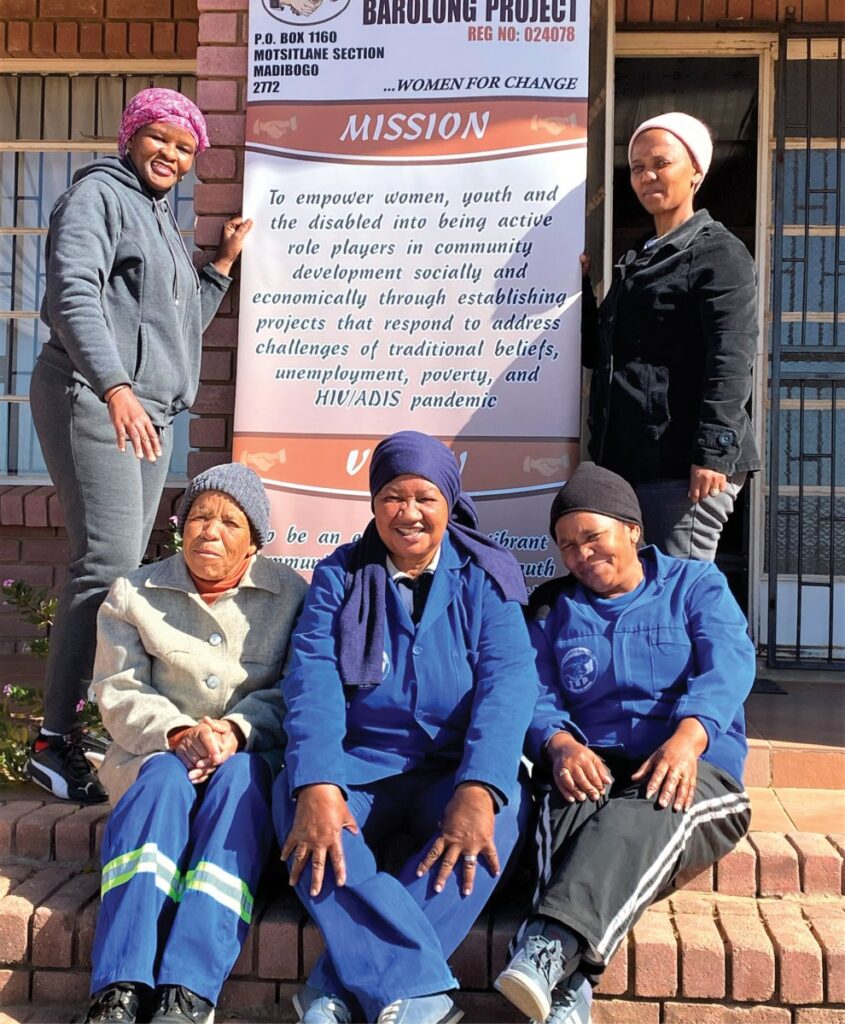
In the North West, a women-led community development project teaching kids and showing women, youth, and people with disabilities how to knit and sew and offers them access to entrepreneurial and employable skills.
A non-profit organisation (NPO) called Tshwaraganang Barolong Project (TBP) was founded in the Motsitlane region close to Madibogo village in 2001.
According to Mapule Lebakaeng, the organization’s head, the organisation first focused on teaching women needlework, sewing, and upholstery skills to assist in combating poverty and unemployment.
“More than 20 years ago, I was motivated to organise a group of women in my area to launch the organisation. I wanted to share my talents with other women and lessen unemployment and poverty in our area, since I had just returned from working in Johannesburg at the time,” she stated.
Years later, with assistance from the National Development Agency (NDA), the organisation began providing early childhood development (ECD) services to five wards in the remote Ratlou Local Municipality.
TBP was designated as an implementing source for the NDA’s early childhood development (ECD) campaign in 2015. It gave the organisation R914, 000 to purchase a fully equipped truck that goes to the municipality’s rural areas where ECD services aren’t available.
“Every day, our mobile classroom visits five wards in the municipal region to provide two hours of instruction to kids ranging in age from one to five,” she said.
Lebakaeng clarified that the goal is to get children ready for formal education and to function well in a classroom setting.
According to her, the ECD initiative identifies households in need of educational services by collaborating with traditional authorities. The initiative is now helping about 360 youngsters.
“We provide two-hour learning sessions with nutritious meals for 40 children every day, as the majority of our learners come from low-income families,” the spokesperson said.
Education is a means of eradicating poverty Lebakaeng reminded them that Tata Nelson Mandela believed that education was a powerful instrument that could eradicate unemployment, inequality, and poverty in society.
“I implore women to establish early childhood development centres, particularly in remote regions and informal settlements, as every child is entitled to an education and shouldn’t be excluded from opportunities due to their circumstances,” she said.
Although the organisation only has six permanent members at this time, Lebakaeng said it still works to provide jobless women, young people, and people with disabilities with skills in textile manufacture so they can open their own early childhood development centres.
“Over 500 individuals of the community have received diverse skills from our project since its inception. Many of the young people who worked with us on the initiative were able to find employment, and some of them benefited from skills that allowed them to launch their own enterprises,” she said.
She further stated that because local women had gained the requisite skills, TBP went into making uniforms for a number of local clients including schools, churches, and stokvels a few years after the project was established.
The organisation produces and markets traditional clothing and jerseys, among other things, and they also provide embroidery services.
“We also make cleaning supplies and fruit juice,” she added.
Thus far, the organisation has benefited from funding and assistance from a number of government agencies and state-owned businesses.
Editor’s note: The organisation first focused on teaching women needlework, sewing, and upholstery skills to assist combat poverty and unemployment.
Description: In the North West, a women-led community development project teaching kids and showing women, youth, and people with disabilities how to knit and sew and offers them access to entrepreneurial and employable skills.
Editor: Thato Mahlangu
Project manager: Do4SA
Do4SA NPC
Standard Bank
Branch: 024210
Acc. Number: 371 278 627
Swift Address: SBZA ZA JJ
Subscribe to The Altruist monthly newsletter which will help decision-makers gain a ground level understanding of the dynamics of poverty.